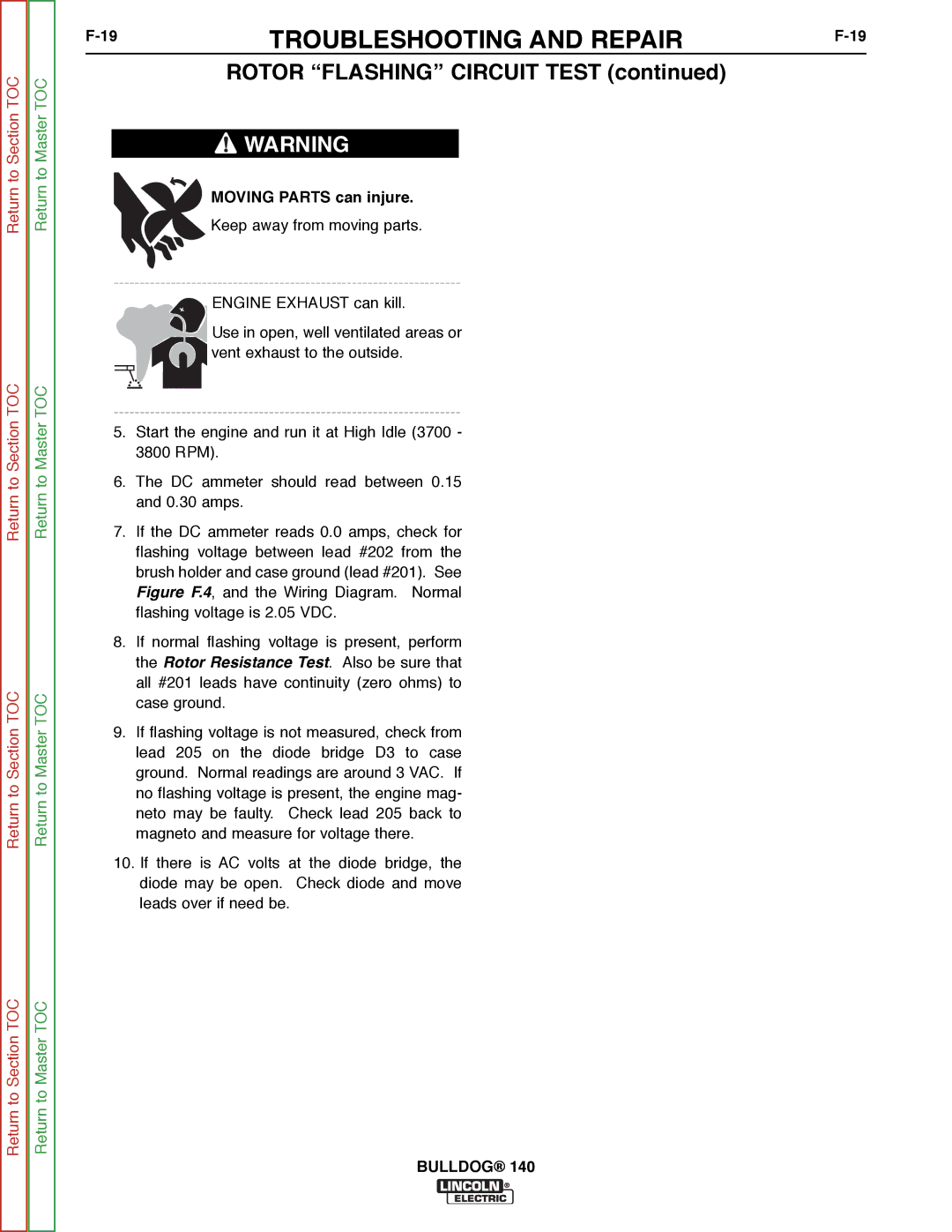
Return to Section TOC
Return to Section TOC
Return to Section TOC
Return to Section TOC
Return to Master TOC
Return to Master TOC
Return to Master TOC
Return to Master TOC
TROUBLESHOOTING AND REPAIR | ||
|
ROTOR “FLASHING” CIRCUIT TEST (continued)
![]() WARNING
WARNING
MOVING PARTS can injure.
Keep away from moving parts.
ENGINE EXHAUST can kill.
Use in open, well ventilated areas or vent exhaust to the outside.
5.Start the engine and run it at High Idle (3700 - 3800 RPM).
6.The DC ammeter should read between 0.15 and 0.30 amps.
7.If the DC ammeter reads 0.0 amps, check for flashing voltage between lead #202 from the brush holder and case ground (lead #201). See Figure F.4, and the Wiring Diagram. Normal flashing voltage is 2.05 VDC.
8.If normal flashing voltage is present, perform the Rotor Resistance Test. Also be sure that all #201 leads have continuity (zero ohms) to case ground.
9.If flashing voltage is not measured, check from lead 205 on the diode bridge D3 to case ground. Normal readings are around 3 VAC. If no flashing voltage is present, the engine mag- neto may be faulty. Check lead 205 back to magneto and measure for voltage there.
10.If there is AC volts at the diode bridge, the diode may be open. Check diode and move leads over if need be.
